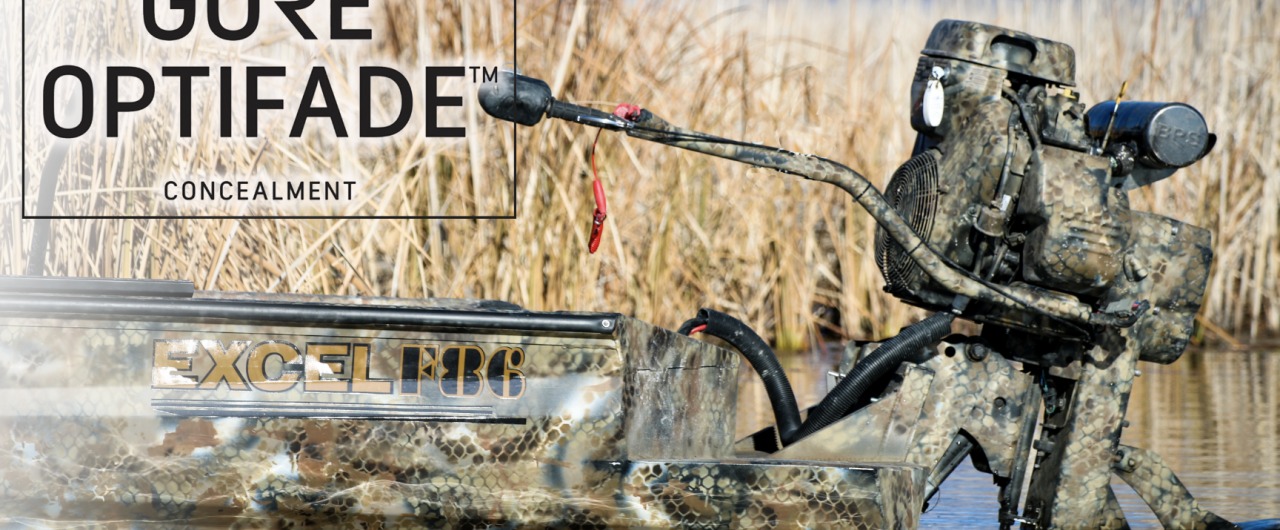If you have ever been out on a duck hunt, you know the thrill of it. But getting started on building your duck hunting knowledge takes time and experience. Fortunately, you are not in this alone. Duck hunters are some of the friendliest folks out there. In fact, most hunters are willing to talk your ear off on the latest tricks and techniques they have picked up along the way if you ask. However, getting down to the nitty and gritty business, there are a few questions our hunting experts get from up-and-comers regularly.
From which dogs are best duck hunting companies to which accessories help the most, everything you need to get started on your duck hunting journey is below. But, if you don’t find the answer to your question, get in touch with our team. We love talking shop with our customers. Contact us, and we will help get you set up with the best gear, tricks, and tips for the upcoming waterfowl hunting season.
Do you need decoys to duck hunt?
If you are just starting as a duck hunter, you probably have asked yourself (or Google) this question once or twice. Luckily, you have come to the right place. The answer to if you need decoys to duck hunt is yes.
Decoys are a significant part of duck hunting. But don’t just go and buy the most expensive baits on the market in the hopes that they are the best choice. Pricey decoys don’t guarantee that you will kill more ducks—ask a seasoned hunter and they will probably tell you a story or two about a homemade decoy that got them some of their largest hauls.
Rather than look for the most expensive decoy on the shelf, go for an option that gives you the most bang for your buck. One rule of thumb we live by is that you need motion in your decoy spread. That means your decoys should cause a ripple in the water or have some sort of movement involved in the device.
Motion is so important in your decoy set-up because live ducks can tell the difference. A group of two or three dozen real ducks doesn’t sit still—they flap their wings, swim in the water, and cause a commotion in the water. You want the ducks you are hunting to see that motion and believe the decoys are live ducks, as well.
Even if you decide not to get decoys with movement capabilities, you can make your own DIY jerk rig. These types of rig create current and movement in your spread.
Do you need a dog to duck hunt?
Sure, you don’t necessarily need a dog to hunt—it helps. Dogs make great waterfowl hunting companions, especially in terms of retrieval and companionship. They don’t call them “man’s best friend” for nothing. If you hunt over open water without a dog, you will need a boat or waders at a minimum. Even then you risk losing downed birds. However, if you decide to hunt without a dog, there are a few tips to making it work.
Tip #1: Focus Your Efforts On Smaller Water
Try to hunt shallow marshes and swamps where you can wade. Then you can lure the ducks towards the shore rather than needing to disrupt the water by pushing your motor out too far.
Tip #2: Hunt in AG Fields
You can also try hunting in AG fields near a good water source. You can then push the ducks away from the water for easier retrieval.
Tip #3: Try Small Farm Ponds
If you can find small farm ponds that can be stalked, your shots will be mostly over dry land when the ducks flare up and away. You might need waters if you take this route, but otherwise, it will be a good time.
Tip #4: Hunt Over Land
Since ducks and geese go out to grain and grass fields to feed, you can set out decoys and lay in the area rather than hunting over water.
Can you duck hunt in the rain?
Ask a group of waterfowl hunters this question, and you will get a range of answers. Some duck hunters swear by hunting in “ducky weather,” while others wonder if it is even worth going out in the rain. The only way to know which you prefer is by experiencing a hunt out in the rain yourself. You might experience a great day, and you might have to endure an awful rainy-day hunt. However, there are a few benefits to sticking it out during downpour conditions. Here’s why.
- Puddlers and divers move like crazy before and after a period of rain.
- Accompanying increased winds can trigger greater bird activity and push fresh birds towards your hunting grounds.
- You will shoot more ducks out in the rain then you will while sitting at home.
- First, help get your golden retriever used to hunting situations. This includes helping them adapt to the certain sights and sounds of hunting, the smell of game, and the hunting environment. This will help them accurately perform all necessary tasks in the field.
- Help teach your hunting companion how to wait safely behind a duck blind or with you before they are commanded and released to retrieve your downed game.
- Retrievers should also be trained to notice where game lands and learn how to mark the location. Then when they are released, they will proceed to the game in a direct, straight line. This will also help them not get distracted by other activities happening in the area.
- Another very important aspect of duck hunting with a dog is to train your golden retriever to handle game gently, and not chew or damage the duck so that the meat is not edible.
The best advice for rainy day hunts is to watch the weather radar and gauge whether it is worth it. Fortunately, with all the modern rain gear on the market today, hunting in the rain is a lot less of a hassle than ever before.
Do you need a boat to duck hunt?
One of the first things that should be on every new duck hunters list is a boat. But if you don’t have the budget for a motor yet, don’t despair. There are a few ways you can experience a high-quality duck hunt without a boat.
You can hunt over land in grain and grass feeds where ducks feed. You can also get a good set of waders and stalk shallow water. However, if you hope to pursue waterfowl to a greater extent, you will need a boat. Luckily, there are three other budget-saving tricks that can help you save up for a motor faster.
Budget Tip #1: Save Money on Hunting Spots
Don’t hunt in private clubs or leases. Leasing or owning a duck spot is a very costly endeavor. Try shooting in public areas instead. These include wildlife management areas, public reservoirs, natural lakes, free-flowing rivers, state and national forests, refuges, military reservations, BLM lands, and utility company lands. You will need to put in the legwork and scout an area to claim as most sports are heavily-pressured. But, put in the work, and you can make any spot a great one.
Budget Tip #2: Try Budgeting Your Blinds
Blinds full of the latest features like electricity, plumbing, kitchens, and more don’t necessarily mean you will have a successful hunt. If you are looking to save money, then you can save money by setting up a blind that doesn’t cost very much. Highly effective blinds can be constructed with a few poles, camo netting, zip ties, and natural vegetation. Conceal yourself with a natural cover like on-site cattails, grass, tree trunks, and leaves can also do the trick.
Budget Tip #3: Learn When and Where to Hunt
Learning where and when to hunt can keep you in action no matter how much you have to spend. While it may require you to put in a little extra work, trying out these spots may offer the greatest reward. When it comes to learning when and where to hunt and increasing your hunting strategies, budget-conscious hunters should stay creative. Don’t get comfortable sitting in a spot without much going on—get out there and push yourself to learn what works. Don’t do what everybody else is doing but try something new.
Do golden retrievers duck hunt?
Golden retrievers were born to hunt—just consider their name. Duck hunters can train a golden retriever to retrieve their downed birds over all types of terrain. Also, an excellent retriever can prove an invaluable piece of the duck hunting puzzle. In order to make your golden retriever one of the best in the hunting business, you will need to teach them the proper skills.
The hunting skills you must teach them include:

If you properly train your golden retriever, you will quickly find that they are the perfect hunting companion. The combination of their distinct skills, along with the techniques you teach them, will make them invaluable in the field. Read our list of best duck hunting dog breeds.
Do you need waders to duck hunt?
Since ducks populate around water, it is hard to get around purchasing waders. While hunting with a motor may make it easier to stay dry if you are trying to skip the waders, you might be sopping wet by the end of the hunt. If you decide to get a pair of waders, there are a few things to keep in mind.
One of the first things you should know is that quality matters. Many new duck hunters try to buy their waders on a budget by going for the lowest price or picking out some from a garage sale. But it is important to know what you are buying.
Make sure that you pick waders that can get the job done. Be an educated consumer and take the time to know what is best for you. You can do this by reading information about your waders—look up customer reviews, product materials, and more. But don’t let one disgruntled customer dissuade you from a particular wader. Look at what the general reviews say and decide what works for you.
There are certain features and benefits to look at when purchasing a set of waders, as well. First, notice the thickness of your material. Depending on where you hunt and the water temperature, you can decide which measurements and material work best for your time waterfowl hunting.
A type of material many wader-lovers are gravitating towards is Gore-Tex®. This material makes the waders more breathable by allowing moisture to escape through the waders. These are an excellent option for those looking for waders to use during the warmer months.
You can also decide if a booted foot, stocking foot, hip-high waders, or chest waders are an option you should consider.
Do you need a duck call for duck hunting?
Duck calls are an essential part of duck hunting. Whether you like the wooden calls that many older generation hunters love or like the newer call with loud and crisper duck sounds, there are a variety of options to use on your next hunt.
Along with perfecting your call, you can collect a series of calls that work well in different environments. These types of calls include open water duck calls, timber calls, cut-down calls, and more.
Despite all of the choices, picking your duck call is really up to you. Most duck hunters select their call based on what sounds good to them. If it looks nice, then that is even better. No matter what you pick, choose a call that draws the ducks in, gives you plenty to aim at, and provides the best experience.
Mud Buddy Motors
Now that all of your questions are answered, it is time to get out in the field. Those ducks won’t wait forever. But before you go, you can browse through the Mud Buddy Motors site for additional help with all of your duck hunting needs. If you have any other questions, you can also get in touch with our team. Contact us today for all of your duck hunting needs.




